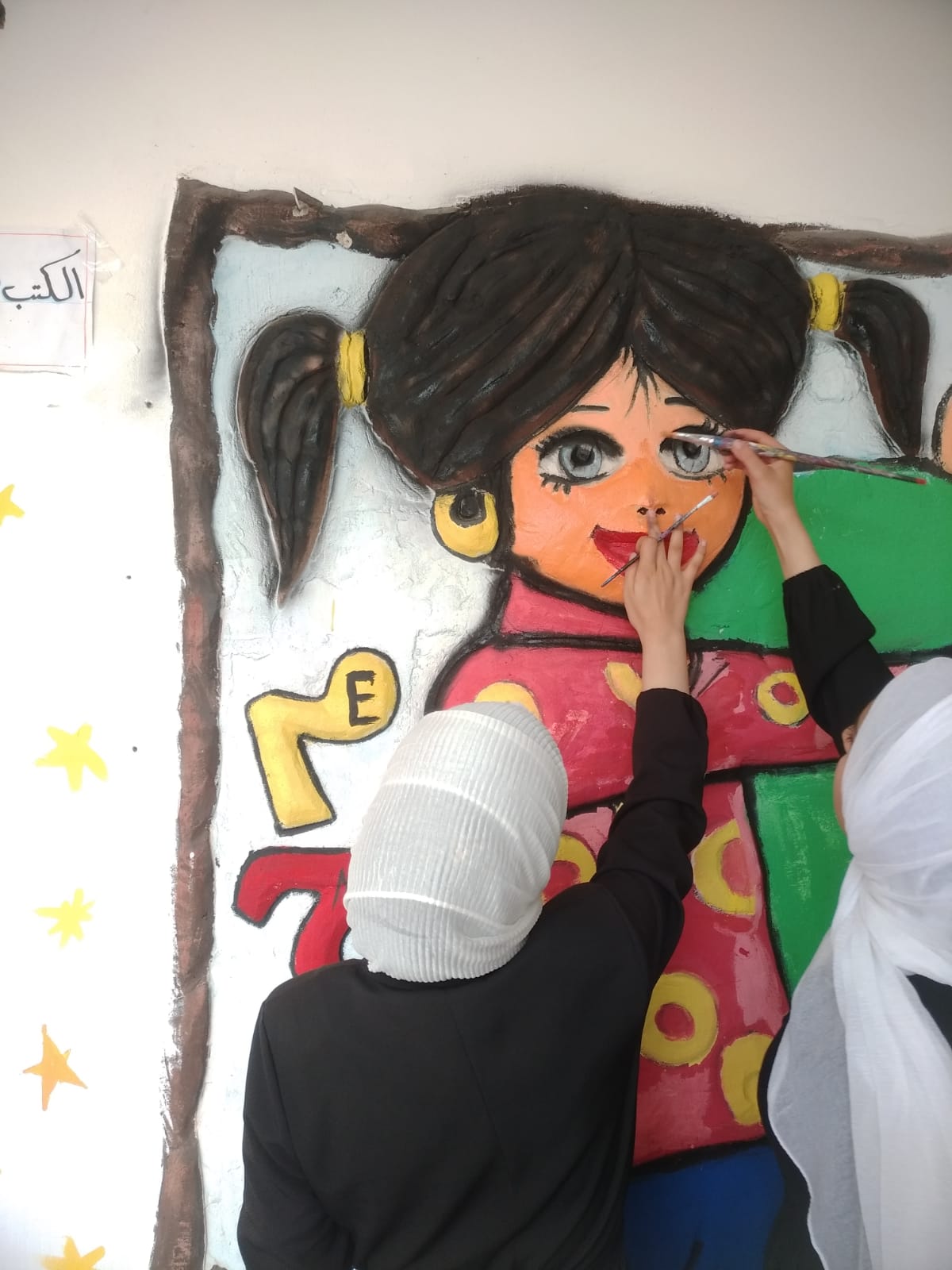School Teachers and Pupils Promote Gender Equality in Gaza Schools
Date:
School teachers are trained to promote gender equality and promote positive gender roles and empower pupils to do the same in the Gaza Strip, in partnership with the United Nations Population Fund (UNFPA) and the Ministry of Education through the HAYA Joint Programme.

Thus far, over 4,660 students and 239 teachers killed in Israel’s war. Over 625,000 students and almost 23,000 teachers in Gaza been affected by school closures and attacks, with most schools now serving as shelters for the internally displaced, so far. Students in Gaza continue to face psychological repercussions of the ongoing war, many exacerbated by the loss of one or both of their parents. Amidst the violence and destruction of war, teaching gender equality and positive gender roles to children in Gaza becomes even more critical.
By promoting messages of empathy, understanding, and respect, educators can help children cope with the trauma of war and build resilience in the face of adversity. Education can play a key role in building psychological resilience, empowerment, and social support, among others. In conflict-affected areas like Gaza, education is a key component to preventing acceptance of violence against women, girls, and boys is to ensure the understanding of violence concepts, gender equality, and respect, especially at a young age when these beliefs are still being formed. Towards this end, before Israel’s war on Gaza, the United Nations Population Fund (UNFPA) with the Ministry of Education through the HAYA Joint Programme trained over six hundred teachers and counsellors in forty schools throughout the West Bank and Gaza Strip. Using a gender-based violence* support manual developed by World Vision and updated by HAYA, teachers and counsellors learned how to use positive teaching methods, promote gender equality, and challenge gender stereotypes in their school curriculum. They were also trained on how to detect and refer cases of violence among pupils. Through extra-curricular activities, parents and their children also learned about and debated gender-based violence concepts, gender equality, and traditional gender roles.
Before the war, school counselor Dr. Samah Abu Zeina began working in the field of education to create a positive change in her community and says this training will help her do just that.

Samah says that as a result, she, other counsellors, and the teachers used positive teaching methods in their classrooms, and the way the teachers communicate with pupils and how pupils interact with each other changed for the better, becoming more understanding and respectful.

Sixteen-year-old pupil Malak says violence affects children and young people’s social and psychological development as well as their education. The extra-curricular activities had provided an opportunity for Malak, her fellow pupils, and her teachers to discuss topics around gender and violence and brainstorm ways they can each work on their behaviours to help prevent and reduce the negative effects of violence.

For Malak, these extracurricular activities gave her the self-confidence to express herself freely, and she now wants to be a proponent for gender equality, sharing what she has learned with other pupils, especially those who have suffered from violence.

Despite the challenges, the HAYA Joint Programme plans to continue working with pupils on promoting positive attitudes and behaviours that combat violence against women and girls and train teachers, counsellors, parents, and children about gender-based violence and what they can do to prevent and stop this violence in the West Bank and Gaza Strip.

Once schools reopen, the GBV manual and the learning gained from the training and extra-curricular activities will be integrated into the yearly plans of schools with which HAYA JP works. With access to gender-based violence guidelines and curricula, the hope is to contribute to the continuing national efforts to change gender concepts and social norms.
Especially given the impact of Israel’s war on schools and education still to come, Samah says that the support given through HAYA has made a difference and efforts must continue, including updates to the curriculum supporting women’s rights and empowerment. “Gender equality will be achieved when there is a correct awareness of gender-based violence concepts, far from outdated customs and traditions and incorrect religious interpretations of gender-based violence describing these concepts incorrectly and inappropriately.” While war can have devastating consequences for education, including the disruption of learning, loss of opportunities, and trauma, education also serves as a powerful tool for promoting resilience, empowerment, and hopefully sustainable peace.
Survivors of violence in the West Bank can contact health care, justice and policing, and social services listed in the full directory of available services in the West Bank and in the Gaza Strip. Please note that services in Gaza have largely been disrupted by the ongoing Israeli war on Gaza, with several services only partially functioning or not at all.
*Gender-based violence is violence that results in, or is likely to result in, physical, sexual, or psychological harm or suffering, including threats of such acts, coercion, or arbitrary deprivation of liberty, whether occurring in public or in private life.

|
|
Arabic version (PDF, 718KB) |
